I wrote this article in Japanese and translated it into English using ChatGPT. I also used ChatGPT to create the English article title. I did my best to correct any translation mistakes, but please let me know if you find any errors. By the way, I did not use ChatGPT when writing the Japanese article. The entire article was written from scratch by me, Saikawa Goto.
Introduction
Movies and books covered in this article

I will write an article about this movie/book
What I want to convey in this article
I believe that society should respect the “will of the mother” whether it’s for childbirth or abortion.



I hope that Japan does not become like the United States, where movements to ban abortion have begun for religious and ideological reasons.
Three takeaways from this article
- I cannot help but feel frustrated when I am forced to accept that “this is what justice is”.
- The general sentiment among Koreans towards “baby hatches (A window where parents can anonymously leave their babies who cannot be raised for various reasons)” seems to be “if you’re going to abandon your baby, don’t give birth to it in the first place”.
- Regardless of the situation, I hope that society will prioritize the salvation of the “weakest party involved”.



I was really drawn to Bae Doo Na, who played Soo-Jin, even though I really dislike the female detective Soo-Jin.
Self-introduction article


Please refer to the self-introduction article above to learn about the person writing this article. Be sure to check out the Kindle book linked below as well.


Published Kindle books(Free on Kindle Unlimited)
“The genius Einstein: An easy-to-understand book about interesting science advances that is not too simple based on his life and discoveries: Theory of Relativity, Cosmology and Quantum Theory”
“Why is “lack of imagination” called “communication skills”?: Japanese-specific”negative” communication”
The quotes used in this article are based on notes taken at the movie theater from movies in Japanese and are not direct quotes from the foreign language original movies, even if they exist.
What Determines Good and Evil? Thinking about “the Nature of Justice” from the Movie “Broker”
I cannot Tolerate being Forced to Accept What is “Just”
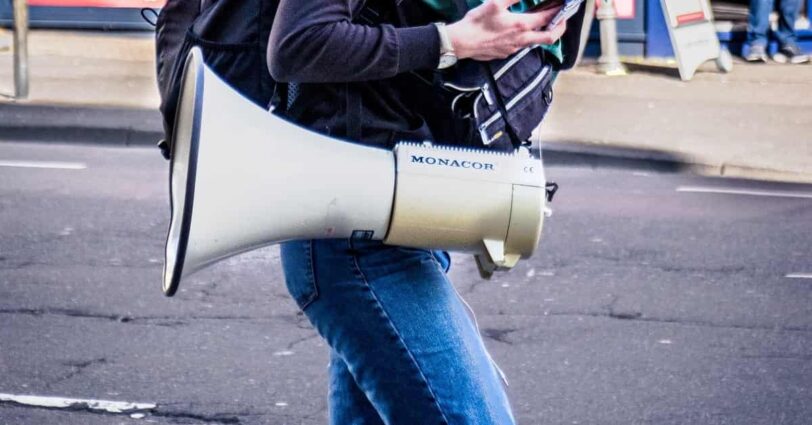

Recently, some shocking news was reported in America. It is said that “abortion” may no longer be allowed due to a ruling that overturns the former Supreme Court decision. Upon investigation, it seems that laws have already been enacted in some states that essentially prohibit abortions. It is surprising that it is not treated as an exceptional case even in cases of sexual crimes or incest, but rather prohibited uniformly.


You were really surprised by this news, weren’t you.



Although there are various issues such as Asian hate and black discrimination, I think it’s really dangerous that there are states that allow ‘abortion ban’.
I think this is a story that involves various factors such as religion and family views, so I don’t intend to delve into the specifics, but I get frustrated with the “imposition that ‘not having an abortion is justice’.” Regardless of the reason, I feel that any situation where the mother (and the biological father of the child) is not given top priority in deciding whether to have a child or not is crazy.
Regarding “giving birth to a child,” there was a very impressive episode. It was written in a book I read before called “Yanomami” by Kokubun Hiromu (Shinchosha).


According to the Yanomami, “newborn babies are just ‘spirits’ and only become ‘humans’ when their mother holds them.” In other words, “if the mother doesn’t hold them, they will return to heaven as ‘spirits’.” To put it more bluntly, “if a mother determines that she cannot accept a child as her own, she will simply kill it.”
NHK’s reporting team was also “quite shocked” by this episode, weren’t they?



Even reading it, I can’t help but think “what an incredible story.”
It may be a cruel custom, but in Japan, there were also practices such as “UBASUTE (abandoning the elderly in the mountains)” and “MABIKI (killing children who could not be raised due to poverty).” Therefore, criticizing only that act alone is meaningless. Yanomami has developed such a way based on their own reasoning and history.
What is important is that in Yanomami, the “decision to hold a child or not is entirely left to the mother.” Fathers and the community do not interfere with the mother’s decision or raise any objections. In terms of “the mother’s will being given top priority,” this may be the most ideal situation. Of course, we cannot simply apply the same method directly to Japan, but we feel that we should aim for a direction like Yanomami.
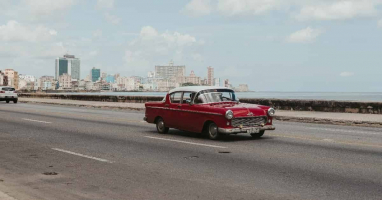

Additionally, in terms of “imposing justice,” sometimes you may feel uneasy about the approach of “restricting rights to reduce damage.”


For example, the other day, I saw a news story saying that the “animal welfare law” had been revised, and it resulted in a restriction on the “number of animals that can be protected.”



When I first heard about this, I was like, “Huh? What are they talking about?”
Even though it was a “revision of the law with good intentions” from the administration’s point of view, it ended up having the opposite effect.


Under the animal welfare law, it is specified how many animals one person is allowed to own, whether it’s at a pet shop, a breeder, or a shelter. With the recent law revision, the standards have become even stricter, making it necessary to have more people to maintain the same number of animals as before.
Of course, if they could hire more people, there would be no problem, but not all places can afford that. So, in reality, they have no choice but to “reduce the number of animals they keep”. Indeed, there are cases where “keeping too many animals to keep” becomes a social problem, a situation that should be called “animal abuse. The law was probably revised as a countermeasure. However, by “restricting the original ‘rights’ in order to reduce such ‘damage,'” the people who have been doing the right thing are now unable to take appropriate action, which is a situation that is a complete reversal of the original plan.





What’s really strange is why we’re not going in the direction of “cracking down on bad situations”.
Well, I guess the reasoning is that a law revision is necessary to recognize it as a “bad situation”.
I felt the same way about the “AV new law (law enacted in the name of protecting women who appear in adult videos)”. This can also be called a way of “restricting rights to reduce damage”. However, it seems that people who have been doing their job properly are unable to work properly because of this. I don’t understand why we can’t do it in the form of “cracking down on bad situations”.
In all aspects of society, the behavior of “restricting rights to reduce damage” is treated as if it were “justice”. I feel very uncomfortable with this trend. “Reducing damage” is a very pleasant-sounding word, so it can be said to be an argument that no one opposes. Therefore, it can feel like they are trying to push things through with reasoning like “anyone who opposes this is weird”.


“The idea that ‘zero harm is justice’ can make society very narrow-minded. Of course, it’s better to have as little harm as possible, and it would be great if it were zero. However, is the situation where “righteous actions are greatly restricted” really “justice” to achieve that?



I think it’s important to strike a good balance between “reducing harm” and “restricting righteous actions.”
Even if there is “zero harm,” if there is also “zero righteous action,” then it’s really meaningless.


The movie “Broker” is a story that makes us think about “justice” centered on the so-called “baby hatch” that has also become a topic in Japan. Can we really call “baby hatch” “justice”?


Is it Less of a Crime to Kill a Child Before it’s Born than to Abandon the Child After it’s Born? How would you answer?
“Broker” is a story that unfolds with the plot of “trying to sell a child abandoned in a ‘baby hatche'” . And I believe that the only “essentially bad act” in this movie is “human trafficking”. In other words, the existence of “baby hatche” and the parents who use it are by no means in a “bad” position.



Honestly, I don’t really understand what’s wrong with “baby hatche.”
You think it’s a wonderful way to turn the “reality that the law cannot cope with” into a “realistic solution,” don’t you.
In Korea, where the movie takes place, there are reportedly more “baby hatche” than in Japan. However, it is by no means a widely accepted presence. In the movie, criticism of “baby hatche” is expressed in various ways.


To summarize all of them,
Because of the existence of “baby hatches”, mothers become irresponsible.
That seems to be the opinion. I really doubt if there are people who think like that, but let me refute it in my own way. In essence, this opinion means that the existence of “baby hatches” leads to the mindset of “it’s okay even if I get pregnant,” and that mindset leads to reckless behavior. However, is that really the case? I am a man, so I think my perception of “pregnancy” is different from that of women, but still, I don’t think one would have the thought that “it’s okay to get pregnant because there is a ‘baby hatch’.” In the first place, unexpected pregnancies can occur for various reasons regardless of whether “baby hatches” exist or not. I cannot understand why “baby hatches,” which are there to deal with such reality, are criticized.
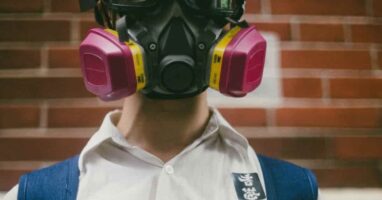

Well, maybe some of them have feelings like, “I couldn’t have a child even if I wanted to, but now they are pregnant and they are abandoning their child.”



But that’s a different story from “justice” or “good and evil,” so it’s difficult.
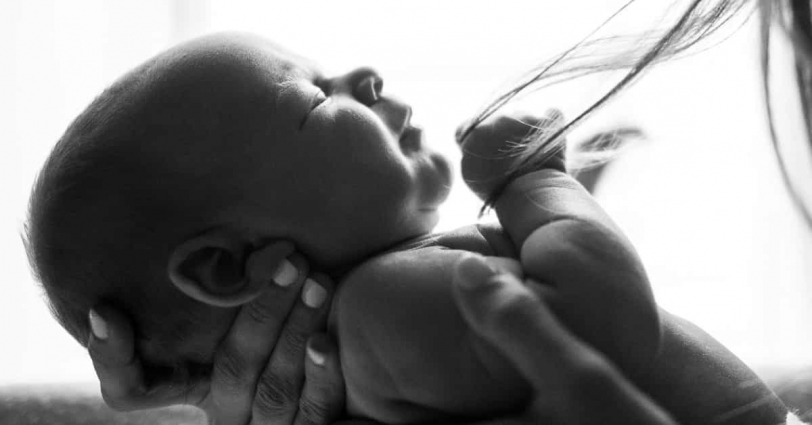

In response to such criticism, mothers who use “baby hatche” refute with very simple words.
Is it less of a crime to kill a child before giving birth than to give birth and then abandon the child?
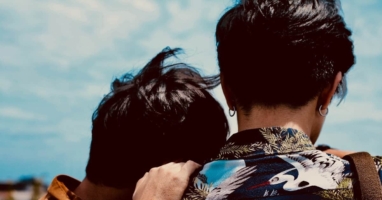

In short, it’s like saying “Abortion is okay, but ‘baby hatch’ is not?” This criticism is very essential, and I feel it’s challenging to answer. If you’re in a position of “I accept abortion but oppose ‘baby hatch,'” how would you refute this mother’s claim?
Also, the same person says this:
Tell it to the father too.
I agree with this too. Criticism of “baby hatch” seems to be only directed at “mothers” for some reason. Naturally, since pregnancy cannot be done alone, any criticism related to “giving birth to a child” should also be directed at “fathers.”



It could be anything like “pregnancy,” “abortion,” “child-rearing,” but I feel like the ” HAHAOYAGENSOU (excessive expectations of being a mother)” is becoming stronger.
Especially, there is an image of the older generation who assert ” HAHAOYAGENSOU ” as a matter of course.


I believe that “justice” should always refer to “the most vulnerable party being saved,” not just limited to “pregnancy” or “abortion.” While the argument could be made that the “baby in the womb” is the “most vulnerable party” in these cases, I still want to think that the mother should be the one who is most saved.
At the very least, I think that people who speak of “justice” for things like religion or ideology should be immediately expelled.
Content Introduction
On a rainy night, a young woman leaves a baby in front of the “baby hatche” attached to the church and walks away. Then, a female detective who witnessed it properly puts the baby in the hatche. That’s how the story begins.


Dong Soo, who works part-time at the church, and Sang-hyeon, the owner of a cleaning store, are doing “baby brokering.” They take babies from the “baby hatch” at the church where Dong Soo works and sell them to those who want children. Dong Soo and Sang-hyeon both have a sense of loneliness due to their family relationships. Dong Soo, who was also raised as an abandoned child, carries anger towards “mothers who abandon their children.” On the other hand, Sang-hyeon seems to be in debt and separated from his wife, and he had few chance to meet his only daughter.
Now, the two of them have been marked by female detectives. The superior who put the baby in the hatche and her subordinate. They have been following Dong Soo and Sang-hyeon, intending to catch them in the act of selling the baby.
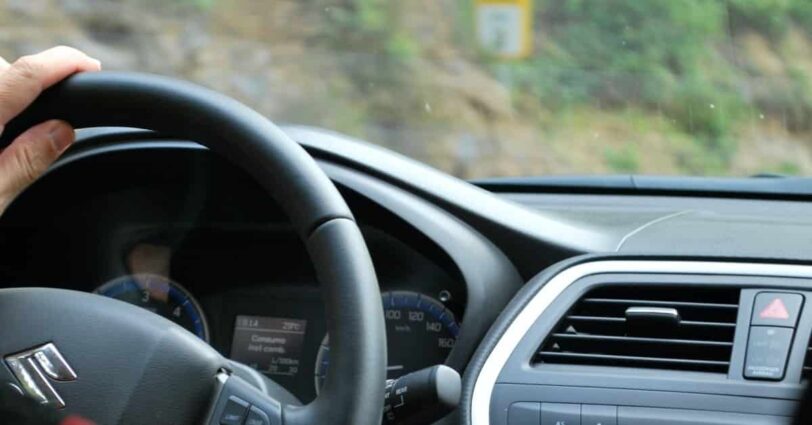

Now, Dong Soo and Sang-hyeon had secretly stolen the baby as usual, but just before they were about to sell it, things started to get complicated. So Yeun, the mother who had abandoned the child, had inquired at the church about the baby she had left at the “baby hatche.” Since Dong Soo and Sang-hyeon had stolen the baby without leaving a record at the church, so the church were not aware of the existence of the baby that So Yeun claimed to have left. Realizing that their baby brokering business was in danger, Dong Soo contacted So Yeun and arranged a meeting with Sang-hyeon to talk. Although they tried to convince So Yeun that they were only trying to find adoptive parents for the baby, she didn’t believe them and suspected that they were baby brokers. However, surprisingly, So Yeun offered to accompany them on the “transaction.”
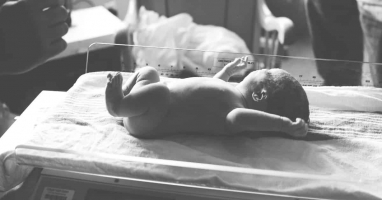

And so they embark on a journey to “sell the baby for a high price, accompanied by the birth mother.”
The female detectives were perplexed by the situation of the birth mother joining forces with the brokers, but they continued to tail them and waited for the moment of arrest. However, the negotiations did not go well and they ended up following along on this strange journey for a long time…
Impression
“I think it’s a good movie, but not more than expected.” That’s not a bad evaluation. The names “Koreeda Hirokazu” and “Song Kang-ho” definitely raised high expectations, and the fact that it didn’t exceed my own expectations doesn’t mean that the work itself wasn’t great.
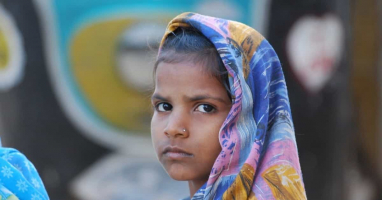




I always think it’s tough to live as an expressive person who keeps being expected.
On one hand, they hope for “works that are true to that person,” while on the other hand, they want there to be “something unexpected,” so it’s a bit of a contradiction.
The movie “Broker” depicts the familiar theme of “the difficulty of being a family,” typical of Koreeda Hirokazu’s works, and also has the characteristic of a Song Kang-ho film, where “even though they’re committing crimes, there’s a sense of fun.” I think that the individualities of both Koreeda and Song Kang-ho are beautifully displayed. The story revolves around the controversial “baby hatch” also in Japan and portrays the crime of “human trafficking,” but also has a very humorous plot, which was very nice.


Personally, I was very impressed by Soo-Jin, the female detective’s boss. I had two conflicting emotions towards her.


First, regarding the character Soo-Jin, I really dislike her. She embodies the kind of thinking that represents the criticism of “baby hatche” by society. It seems that the general feeling among Koreans towards “baby hatche” is “if you’re going to abandon it, don’t give birth to it,” but her actions and words push forward that very argument, and I felt really disgusted by her.
You wouldn’t want to be involved with someone like her, would you.



I would really get irritated if she were nearby.
On the other hand the actress Bae Doo na who played Soo-Jin was fantastic. I don’t remember if I’ve seen her in anything before, but she was the most intriguing actor among the cast of “Broker”.
I can’t really explain what was so amazing about Bae Doo na, or what drew me to her, but despite being unable to explain it, she gave me an overwhelming presence. It was a strange feeling that I’ve never really had before, and it made me realize that great actors are truly great.


Conclusion
Finally, I would like to end with a story that is not very related to the movie as a whole.
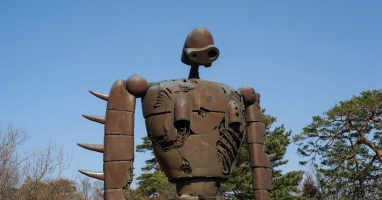

In “Baby Hatch”, So Yeun left a letter with the content “I’ll come pick you up” for the child she abandoned. In one scene, Sang-hyeon tells So Yeun that if such a letter exists, the child will be excluded as a candidate for adoption and will definitely be sent to a foster home. This statement was made in a scene where Sang-hyeon was trying to convince So Yeun that they are not brokers and are only looking for adoptive parents, so there is a possibility that it was a lie he made up on the spot, but I felt that it was likely true. As you might expect, a “baby who may be picked up by the mother” has some complicated risks, so it is possible that they will be excluded as a candidate for adoption. As a mother, she may really intend to come and pick up the baby someday, or it may be an action only to alleviate her “guilt of abandoning her child,” but either way, that act takes away the option of “adoption” from the baby and does more harm than good.
In any case, although it may be repetitive, I strongly wish for a society where the mother who is likely to suffer the most is prioritized and where there is always a choice for the baby to be as happy as possible within that range.


Published Kindle books(Free on Kindle Unlimited)
“The genius Einstein: An easy-to-understand book about interesting science advances that is not too simple based on his life and discoveries: Theory of Relativity, Cosmology and Quantum Theory”
“Why is “lack of imagination” called “communication skills”?: Japanese-specific”negative” communication”







コメント